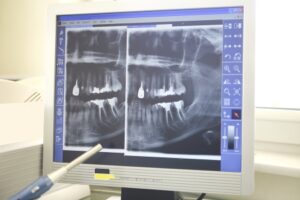Highlighting Root Canals
Posted on June 20, 2019
Root canals in Belmont might have a bad reputation, but today’s root canals are much more comfortable than they’ve been in the past. This kind of dental procedure can help relieve many symptoms. Your root canal treatment may improve the appearance of your smile and even contribute to better oral and overall health. If you think you might need this treatment, read on to learn about some of the benefits you may receive.
Alleviation of Symptoms
Although people sometimes still think of a root canal as a chore, it may be just what you need to get rid of the symptoms of an aching tooth. Your crowns, and the enamel that covers them, are not the only elements of your teeth. You also have the pulp, which houses nerves. If your tooth pulp becomes infected, you might experience a serious toothache, and you might also smell a strange, unpleasant odor coming from the tooth. Some people deal with even more severe symptoms, like fever, tenderness, and swelling.
Improvement of Your Smile
 People typically seek root canal treatment to do away with their toothaches, but this type of procedure can improve the look of your smile, as well. A root canal can substantially improve your cosmetic appearance when you have decay, infection, or cracks in your teeth. If you’re looking to improve your smile but you can’t find a cosmetic dentistry treatment that makes sense for you, it might be time to talk to your dentist about a root canal and bring your smile back to life that way.
People typically seek root canal treatment to do away with their toothaches, but this type of procedure can improve the look of your smile, as well. A root canal can substantially improve your cosmetic appearance when you have decay, infection, or cracks in your teeth. If you’re looking to improve your smile but you can’t find a cosmetic dentistry treatment that makes sense for you, it might be time to talk to your dentist about a root canal and bring your smile back to life that way.
Better Overall Health
You probably realize that a root canal can help your oral health, but did you know that it can help your overall health, as well? Your oral health is connected to your general wellbeing, so taking care of one means taking care of both. Root canals aim to remove the infection from your tooth, preventing this infection from spreading to any other part of the body.
What is the difference between a Root Canal and a Dental Filling?
When receiving a dental filling or root canal in Belmont, the patient may not experience much difference between the two procedures. During both a filling and a root canal, the patient’s mouth is most likely numb, and the drilled area is then covered with a dental restoration. The differences, though, occur in the type of restoration and the severity of the procedure.
Dental Filling
Your dentist may locate a cavity and suggest a dental filling. This process is relatively quick with minor discomfort. After you arrive for your appointment, your dentist will most likely inject a local anesthetic into the gums and tissue around the affected tooth. The dentist will leave for a few minutes while the medication takes effect. Once your mouth is numb, he and a dental assistant will remove the cavity and cement a filling into the tooth. He will use a drill to remove the cavity and all signs of growing bacteria on the affected tooth. Once he is satisfied the cavity is gone, he will use a composite filling to cover the drilled area of the tooth.
Root Canal
A root canal treatment is a different procedure for the dentist, though the experience is somewhat similar for the patient. X-rays will be taken to determine the extent of infection and the shape of the root canals in the infected tooth. The dentist or endodontist will anesthetize the area and place a sheet of rubber around the tooth. This is called a dam, and it is used to block saliva from the treatment area. The dentist will drill into the tooth until he reaches the nerves and tooth pulp. These will be removed, and the root canals will be cleaned out and sterilized. Once the canals are cleaned, they will be sealed, and a temporary dental crown will be placed over the tooth to protect it. If your dentist offers same-day restorations, you may receive a permanent crown that same day. Otherwise, you will make another appointment for a week later to receive a custom-made, permanent crown.


